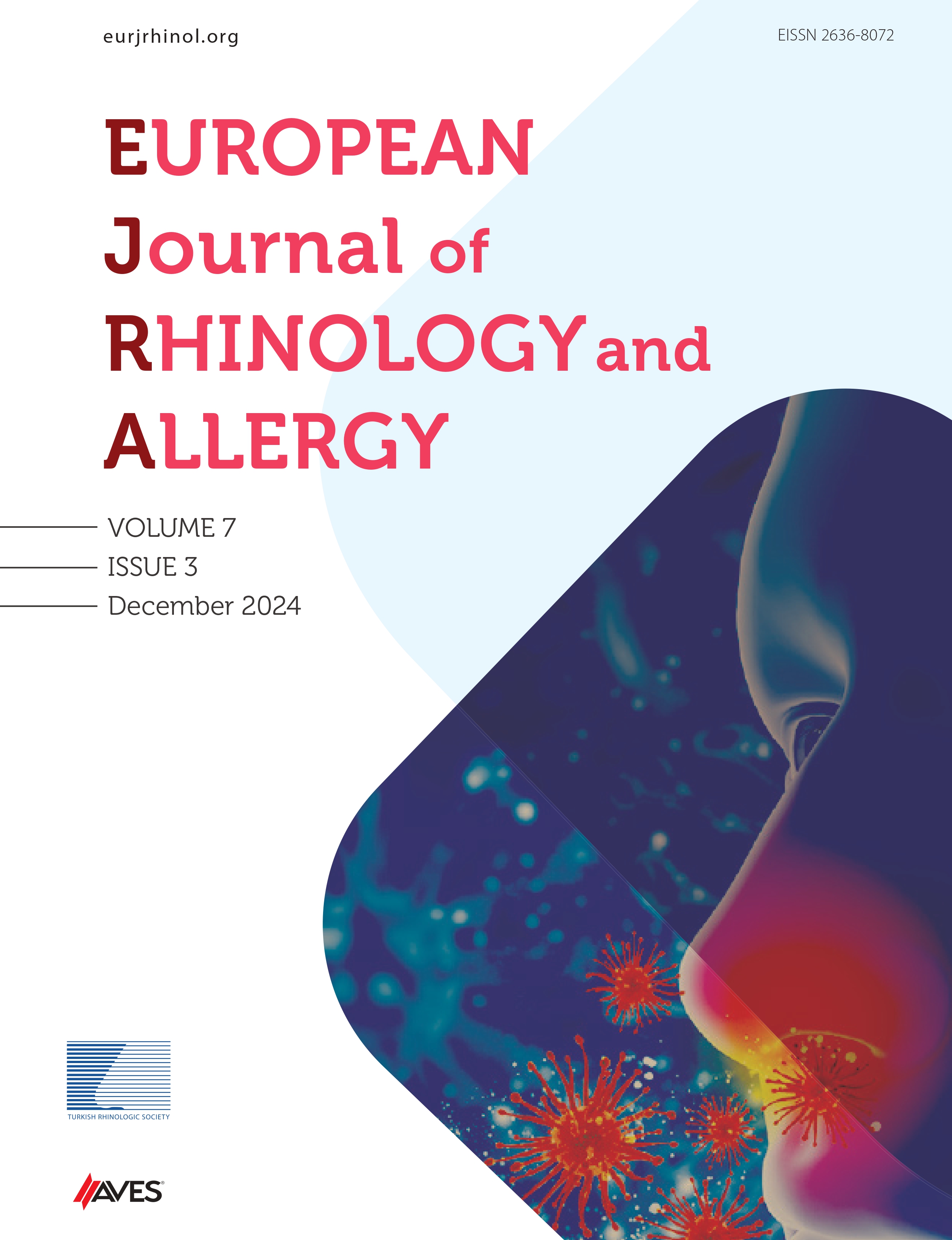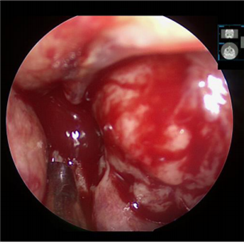Abstract
Sinonasal infection by Mycobacterium haemophilum is rare and has previously been reported only once in the literature. We reported a case of involvement of the sinonasal cavity in disseminated Mycobacterium haemophilum infection and presented a discussion on this condition. A 37-year-old female with a history of immune complex-mediated glomerulonephritis was diagnosed with disseminated Mycobacterium haemophilum infection and was started on a treatment regimen with clarithromycin, ciprofloxacin, and rifabutin. During the course of the disease, she experienced new-onset nasal congestion, hyposmia, and nasal crusting. Endoscopic evaluation in our clinic showed a septal perforation and extensive crusting throughout the nasal cavity. To combat this, the patient was administered steroid-impregnated irrigation. Despite receiving this local treatment, her symptoms persisted and she subsequently underwent endoscopic sinus surgery. Postoperatively, her sinonasal symptoms improved immediately. Awareness of Mycobacterium haemophilum rhinosinusitis may prove valuable to practicing otolaryngologists. An elevated index of suspicion is necessary when acid-fast bacillus staining is positive but routine mycobacterial cultures remain negative. Although standardized treatment protocols for the treatment of sinonasal involvement are yet to be established, appropriate antibiotic treatment, surgical debridement, and aggressive postoperative management are prudent for the effective management of the disease.
Cite this article as: Marin E, Dadgostar A, Leung V, Javer A. Sinonasal Involvement in Disseminated Mycobacterium Haemophilum Infection. Eur J Rhinol Allergy 2019; 2(1): 29-31.

.png)

.png)
